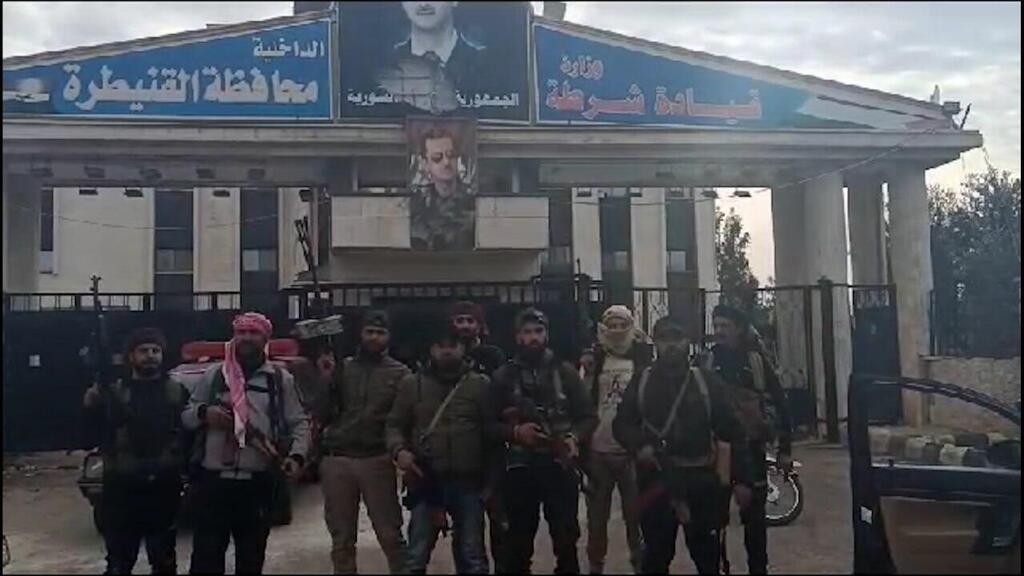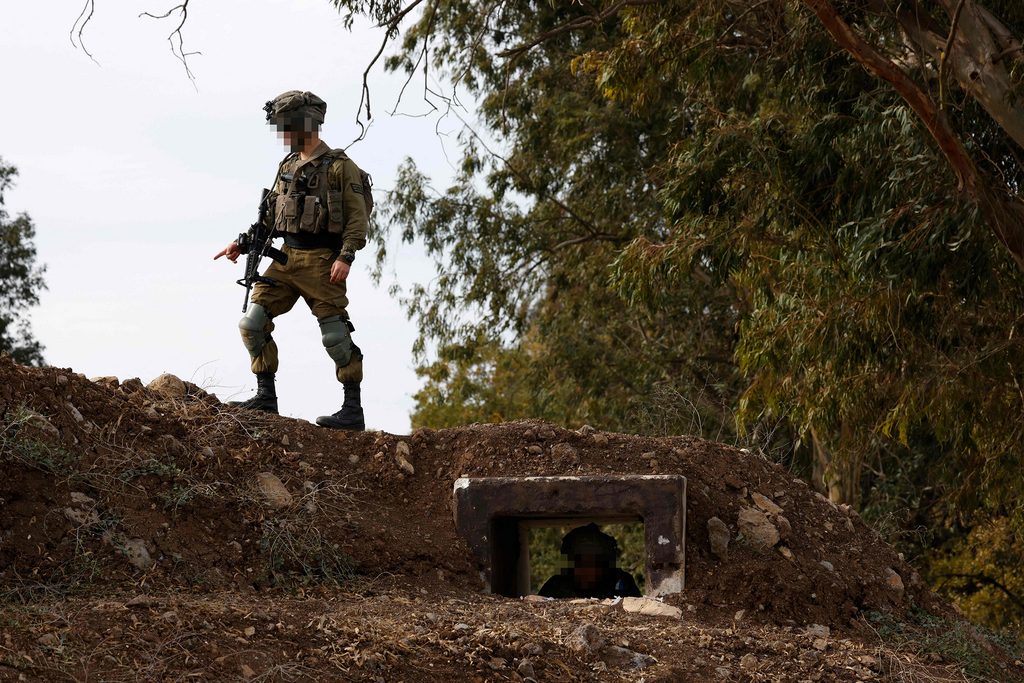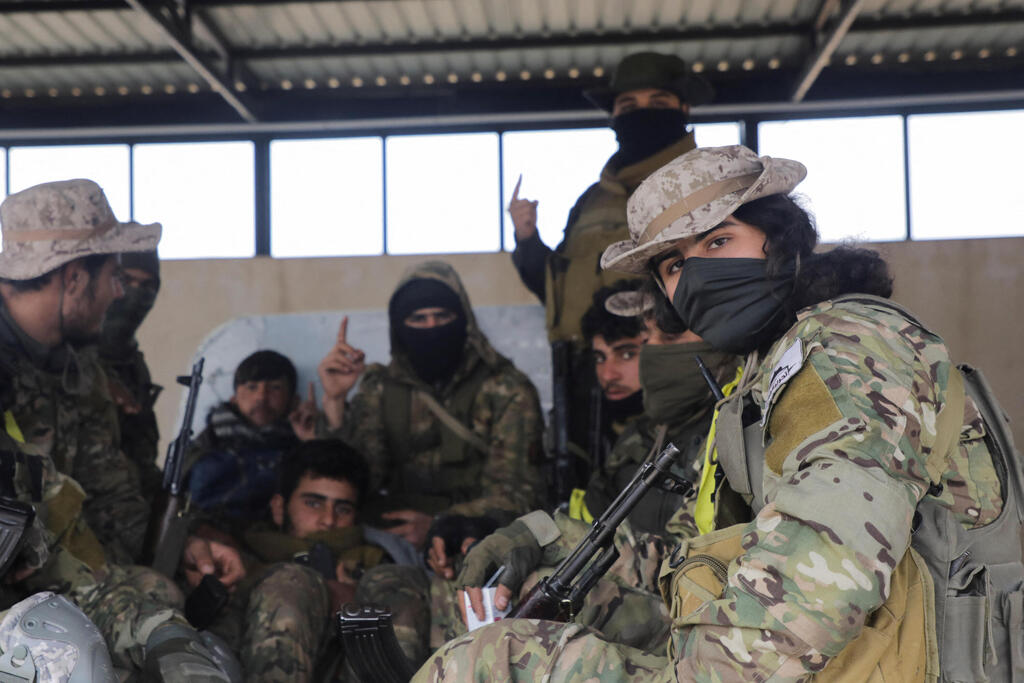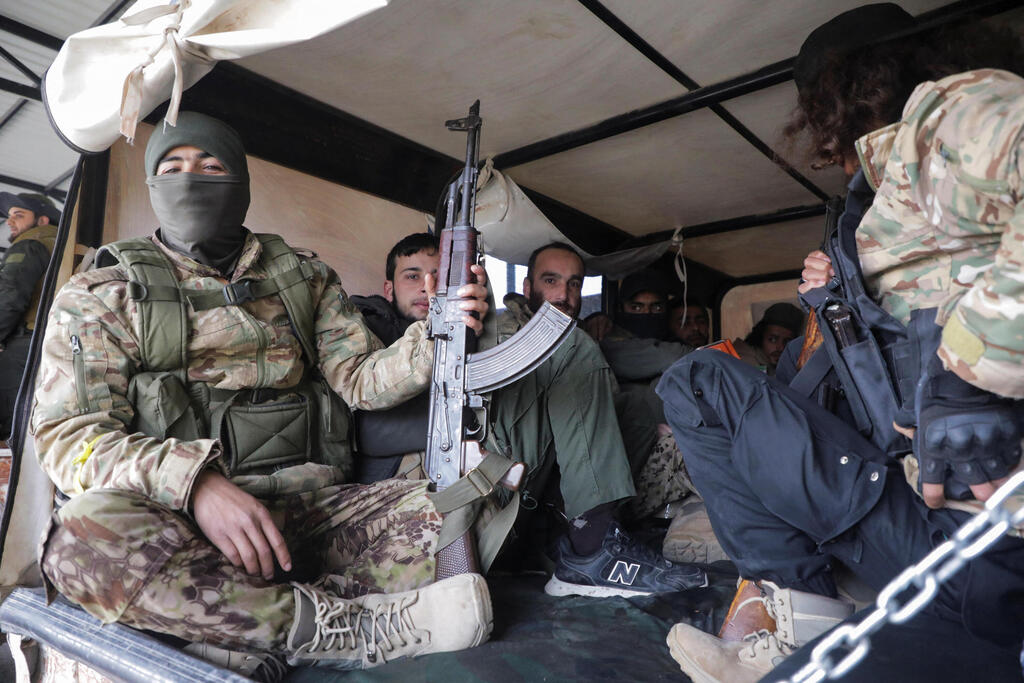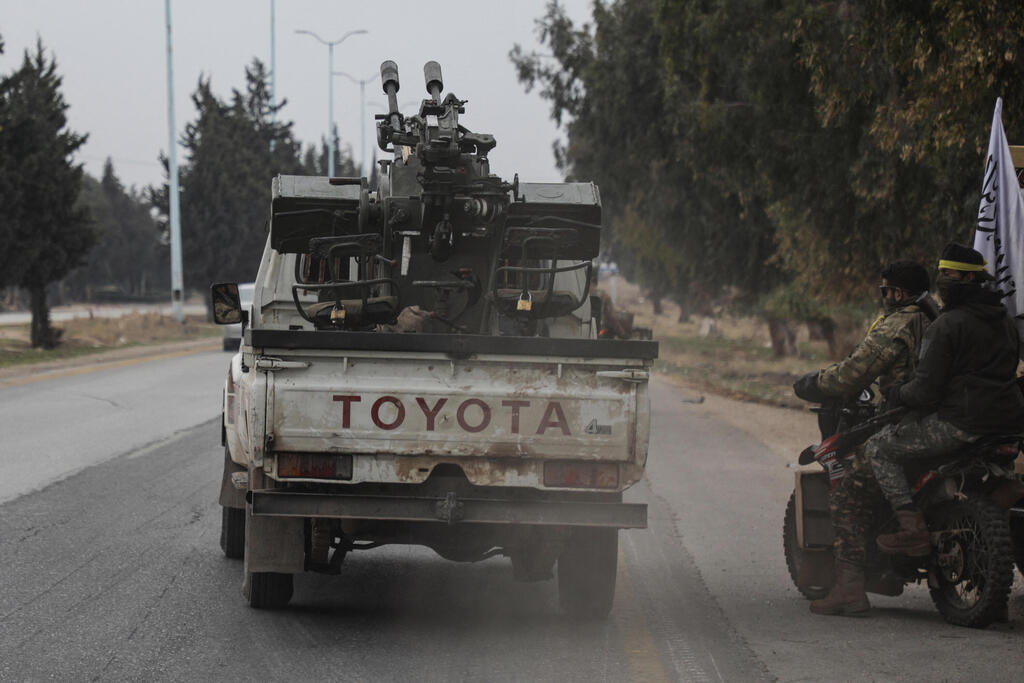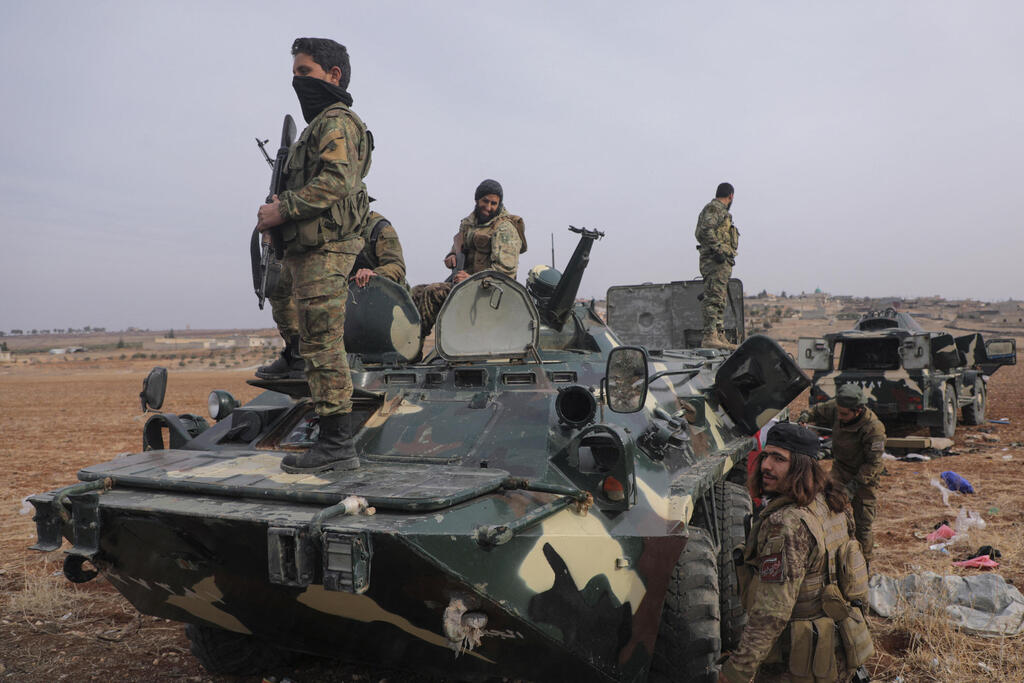Getting your Trinity Audio player ready...
The IDF said Saturday it aided UN forces in repelling a rebel attack on a United Nations outpost near the Druze village of Hader in southern Syria's Quneitra province, close to the Golan Heights.
"A short while ago, an attack was carried out by armed individuals at a UN post in the Hader area in Syria," the military said in a statement. "The IDF is currently assisting the UN forces in repelling the attack.
"The IDF is deployed with reinforced forces in the Golan Heights area and will continue to operate in order to protect the State of Israel and its citizens."
The attacked UNDOF outpost, tasked with monitoring the 1974 Israel-Syria disengagement agreement, sits on a hill opposite Majdal Shams, just feet from the Israeli border. Israel’s intervention was partly motivated by the proximity of the Druze community in Hader, closely tied to residents of Majdal Shams across the border.
Israel has a history of intervening in the area. Nearly a decade ago, the IDF acted to protect Hader against rebel advances, preventing Israeli Druze from taking independent action. Israel had previously assured Majdal Shams’ leaders it would step in to safeguard their Syrian relatives if necessary.
IDF bolsters troop deployment along the border with Syria
(Video: IDF)
The Golan Regional Council assured residents following gunfire heard in the area that “IDF forces stationed in the Golan are responsible for the activity,” and emphasized that while there is “no immediate threat,” the military has increased its presence.
Meanwhile, the jihadist rebel group Hayat Tahrir al-Sham (HTS), not currently operating near Israel’s border, declared its responsibility to defend international institutions, including UN facilities, in Syria.
The IDF announced further troop reinforcements along the Golan Heights, involving infantry, armored and engineering battalions, to bolster defenses and prepare for possible escalation. Recent military exercises in northern Jordan Valley and southern Golan tested rapid response capabilities. Forces deployed during the drills have remained in the Golan to strengthen defenses.
“The IDF is closely monitoring developments, ready to respond to any scenario,” a military spokesperson said on Friday, vowing to prevent threats near Israel’s border and act against any danger to its citizens.
The development comes as rebel factions in Syria make rapid territorial gains in the south. Rebels announced the capture of Quneitra province near the Israeli border, as well as the southern provinces of Sweida and Daraa.
Earlier Saturday, opposition groups reported taking control of Sanamayn, a city 20 kilometers (12 miles) from Damascus, after entering the birthplace of the 2011 uprising, Daraa, last weekend.
The offensive, spearheaded by HTS and joined by other factions, began with surprise attacks on Assad regime forces in northern provinces, including Aleppo and Idlib. HTS leader Abu Mohammed al-Golani told CNN, "Our goal is to topple the regime by any means necessary."
Rebel forces have since seized key cities in central Syria. After capturing Aleppo, the country’s second-largest city, they advanced southward, taking Hama and pushing into Homs, Syria’s third-largest city and a crucial crossroads connecting many provinces. Pro-Assad forces have launched airstrikes and dispatched reinforcements to Homs, but analysts suggest the fall of the city could be a turning point threatening the regime's survival.
Get the Ynetnews app on your smartphone: Google Play: https://bit.ly/4eJ37pE | Apple App Store: https://bit.ly/3ZL7iNv
Meanwhile, opposition reports indicate that rebels are within a few miles of Damascus, with some claiming they are "at the gates of the capital." Pro-regime sources denied rebel forces were near the capital but confirmed withdrawals from surrounding towns.
In the east, Kurdish rebels reportedly captured Deir ez-Zor and the Iraqi border crossing at Al-Bukamal. Local officials in Iraq said approximately 2,000 Syrian soldiers fled to Iraq seeking asylum, with some requiring medical attention.
In Damascus, rumors circulated about President Bashar al-Assad's departure amid rebel advances. His office dismissed such claims, stating he remains in the capital performing his duties. Nonetheless, reports suggest Egyptian and Jordanian officials have urged Assad to leave Syria and establish a government-in-exile. A Wall Street Journal report claims Assad's wife, Asma, and their children left for Russia last week.
In southern Syria, footage emerged of protesters in Jaramana, a predominantly Druze city 10 kilometers (6 miles) from Damascus, toppling a statue of Hafez al-Assad, Bashar's father. Demonstrators called for the regime’s downfall, and security forces were deployed to protect government buildings.
Rebels topple statue of Hafez al-Assad in Damascus suburbs
The foreign ministers of Russia, Iran and Turkey met on Saturday to reaffirm the importance of Syria’s territorial integrity and agreed to renew efforts toward a political resolution to the ongoing crisis. The meeting highlighted the complex alliances in the Syrian conflict: Turkey supports certain rebel factions, while Russia and Iran back the Assad regime.
Russian aircraft continue to conduct airstrikes against rebels across Syria, and pro-Iranian militias have entered the country following the recent surprise offensive.
A source close to Hezbollah revealed that the group, recovering from a year of fighting with Israel, has deployed 2,000 fighters to Syria to support Assad’s forces in battles against the rebels.
U.S. President-elect Donald Trump on Saturday ruled out intervention in the Syrian conflict. "Syria is a mess, but is not our friend, & THE UNITED STATES SHOULD HAVE NOTHING TO DO WITH IT. THIS IS NOT OUR FIGHT. LET IT PLAY OUT. DO NOT GET INVOLVED!" he wrote on his social media platform Truth Social, ahead of his January 20 inauguration. Currently, approximately 900 U.S. troops remain stationed in Syria.


